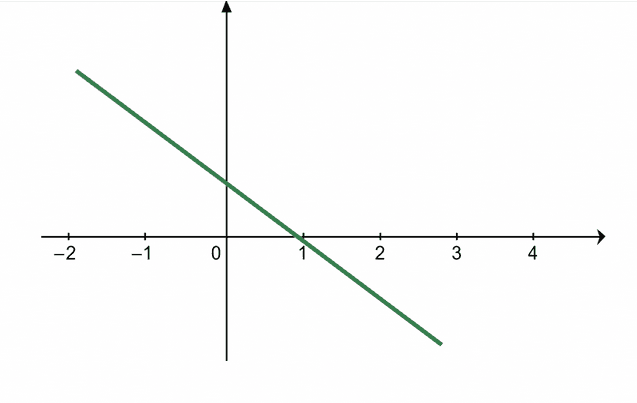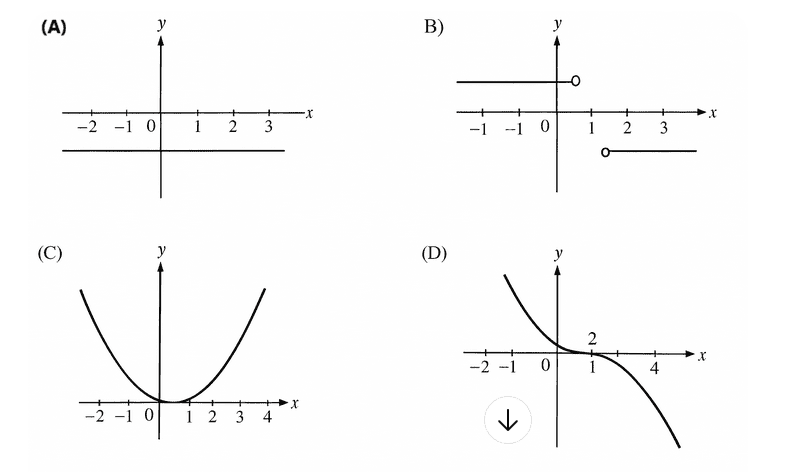AP Calculus BC 6.7 The Fundamental Theorem of Calculus and Definite Integrals - MCQs - Exam Style Questions
Calc-Ok Question

The preceding figure shows the graph of \(g\) (a straight line with negative slope). If \(g(x)=\displaystyle \int_{1}^{x} f(t)\,dt\), which of the following could be the graph of \(y=f(x)\)?

▶️ Answer/Explanation
Detailed solution
By the Fundamental Theorem of Calculus, \(g'(x)=f(x)\).
The graph of \(g\) is a straight line with constant negative slope \(m\). Therefore \(f(x)\equiv g'(x)=m\) is a constant negative function, i.e., a horizontal line below the \(x\)-axis.
✅ Answer: (A)
Calc-Ok Question
The function \(f\) has derivatives of all orders for all real numbers. The table gives values of \(f\) and its first three derivatives at selected \(x\)-values. What is the value of \(\displaystyle \int_{-1}^{1} f”(x)\,dx\)?
| \(x\) | \(-1\) | \(1\) |
| \(f(x)\) | 10 | 0 |
| \(f'(x)\) | \(-1\) | \(-9\) |
| \(f”(x)\) | 23 | \(-13\) |
| \(f”'(x)\) | \(-42\) | 6 |
(A) \(-36\)
(B) \(-10\)
(C) \(-8\)
(D) \(48\)
(B) \(-10\)
(C) \(-8\)
(D) \(48\)
▶️ Answer/Explanation
Detailed solution
By the Fundamental Theorem of Calculus, \(\displaystyle \int_{-1}^{1} f”(x)\,dx=f'(1)-f'(-1).\)
From the table, \(f'(1)=-9\) and \(f'(-1)=-1\). Hence the value is \(-9-(-1)=-8.\)
✅ Answer: (C)
